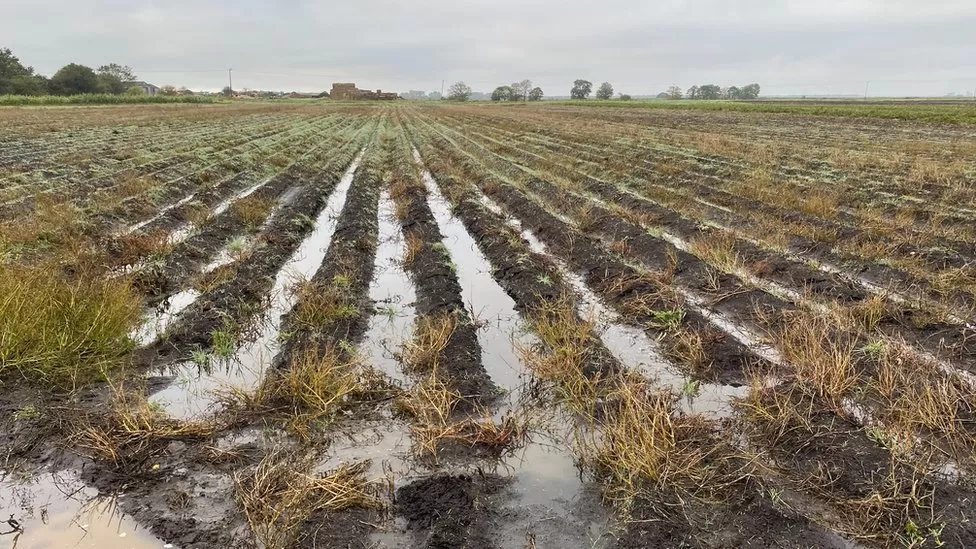Hundreds of Vermont farms are still recovering from last July's catastrophic flooding and other extreme weather as they head into this year's growing season.
Dog River Farm, in Berlin, Vermont, lost nearly all its produce crops in the July flooding. The farm removed truckloads of river silt and sand from the fields before another round of flooding in December washed away more precious soils, wiped out the farm's garlic planted in late fall and left behind more silt and several giant holes in a field, said owner George Gross on Wednesday.
"We had 15,000 garlic heads — bulbs growing here which is a significant amount of retail dollars," he said pointing to a section of field. "And now they're gone. They're somewhere down along the Winooski (River)."
Goat farmers Jeremy and Jennifer Leather lost straw bales near the river that were washed away in the July flooding and others were saturated and unusable, Jeremy said. Their hay also got filled with silt that they are still cleaning up. They've had to buy feed to supplement what the goats are eating, which has been costly and challenging, he said.
A grassroots fundraising campaign called Dig Deep Vermont announced Wednesday that it's giving out its first grants to 32 farms to help with some of those expenses. It estimated farms suffered around $45 million in losses statewide from the flooding, extreme weather and persistent rains.
"The urgency around the need for feed and access to fields for spring planting has reached critical levels," said Vermont Farm Bureau President Jackie Folsom, who said the campaign is being extended.
While the grants ranging from $200 to $1800 won't make farms whole, they hopefully will help pay some of their expenses, said Vermont Agriculture Secretary Anson Tebbetts.
"So maybe it's going to put fuel in a tractor, maybe it's going to buy seed, it's going to buy fertilizer, maybe it's going to pay for supplies. That's what the goal of these private donations are," Tebbetts said at a Statehouse press conference. "It's not going to cover everything but it does give farmers a little bit of hope and it hopefully will pay a bill or two."
The losses have been staggering from the severe weather, he said.
"They're into the millions of dollars, whether it's crop loss, equipment, debris that needs to be removed from fields, Tebbetts said.
Sand and silt are sitting in farm fields and corn has not been harvested in some sections along Route 2 on the 36-mile (57-kilometer) stretch between Montpelier and St. Johnsbury, said Folsom.
"The silt, they're going to have to dig it up and move it out. And unfortunately, that's on the farmers' dime because they can't put it back into the rivers, they can't put it at the end of the fields for buffers. They have to remove that silt before they plant anything," she said.
Many of them will also have to test their fields for contamination.
Gross said he doesn't know what the season holds but for now, his anxiety level will be very high until the harvest is complete in mid- to late-November.
"That's a long to wait and a lot of work to put forward in hopes that you're going to have a pay out but that's farming," he said.
Source - https://www.foxnews.com













